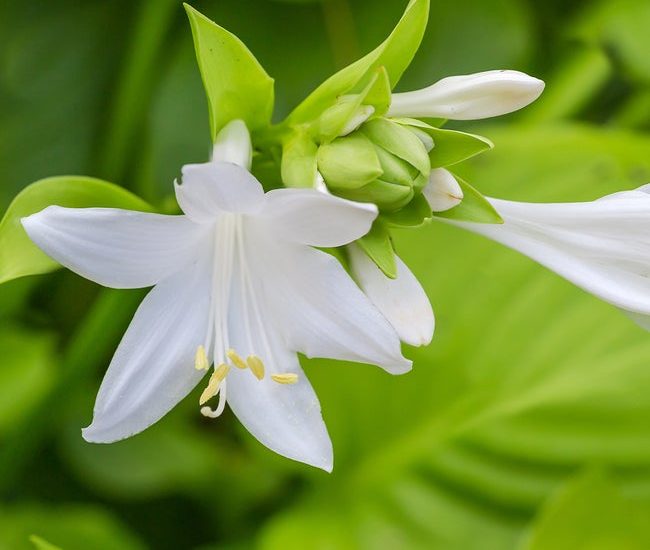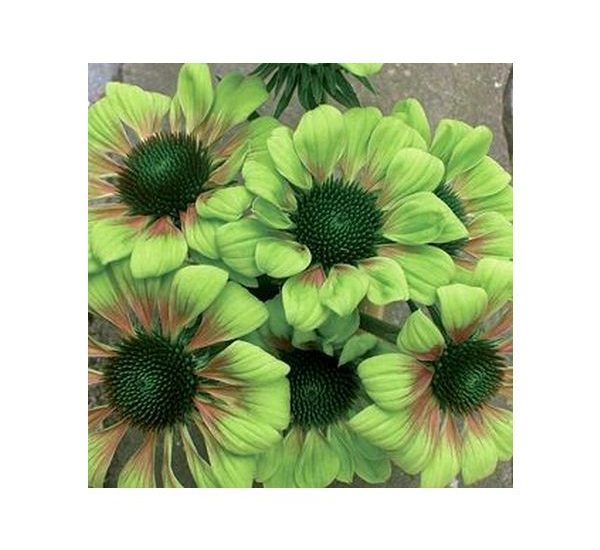Mulch Guide for Gardeners: Care for Your Plants with Mulch
Last updated: February 6, 2026
Gardening might sound like it is a little too much for you. But in the end, the work pays off, and you get fresh and healthy vegetables. You also know what went into them and whether they are organic. You can save money on groceries, get outdoor exercise, and relieve some stress by gardening. So overall, we can say gardening is worth the time and work.
So, you spend a lot of time in your garden and want healthy and beautiful vegetables and plants. That’s why we will discuss mulching and its benefits to your vegetables and plants today.
What Is Mulch?
If you are familiar with gardening or enjoy growing vegetables, you probably heard about mulching. Mulch is a thick material that you can layer over the soil around your plants or vegetables in your garden and use to suppress weeds. It also locks moisture into the soil, so mulch acts as a barrier between the sun and your plants, and it can protect your plants from direct sunlight and drying winds.
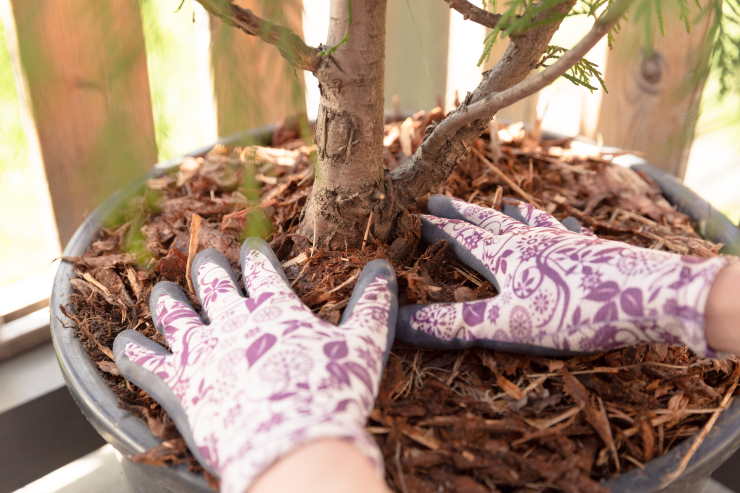
Worms the mulch into the soil, so they help improve the soil structure making it more fertile. Mulch also contains beneficial nutrients for your plants and acts as plant food. So that’s why mulch is so essential for your garden.
Mulch Types for Your Garden
Now you know what mulch is, we can talk about the different types and which of them works best for your garden. There are many kinds of mulch that you can use for your garden, there are both organic and inorganic options, and they have various benefits and uses. Organic mulches are made of dead plants like compost or leaves, inorganic ones generally include rocks or gravel, and inorganic ones may consist of plastic sheeting, fabric, or rubber mulch.
Contrary to organic options, inorganic mulches do not break down with time, and some of their ingredients, like plastic sheeting, can disintegrate into the soil and pollute your garden. They also do not add any nutrients to the soil and might even prevent some nutrients from reaching the soil. However, they are the most reliable solution to long-time weed suppression.
When to Apply Mulch?
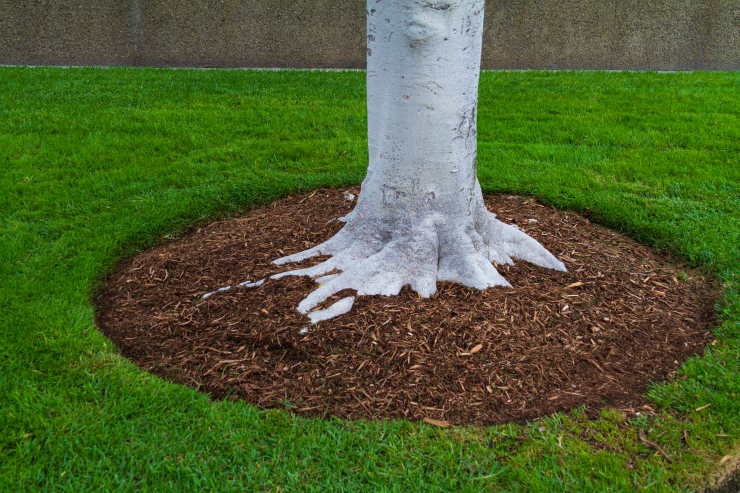
It may sound like a complicated gardening procedure if you have never done mulching before. But it is not. All you have to do is add a protective layer to your soil, and it will bring you many rewards. You can apply mulch to your plants from mid to late spring when the herbaceous plants are dormant and in autumn as the plants dry back then. In addition, newly planted plants can be mulched any time of the year as they benefit from weed suppression and need to keep the moisture inside.
Organic Mulches
Leaf mold: Leaf mold is relatively low in nutrients but is a fantastic soil conditioner. It does not require much work, and you get your results quickly. All you have to do is bag some leaves in autumn, and you can use them to mulch around your garden after about 12 months.
Well–rotted horse manure: This mulch type has a lot of nutrients packed in, and it also retains moisture. It is good for hungry plants like roses or edible ones like pumpkins and squashes. Make sure to let it rot at least two years before use, as if you don’t, it can damage the plant leaves and remove nutrients from the soil while breaking down.
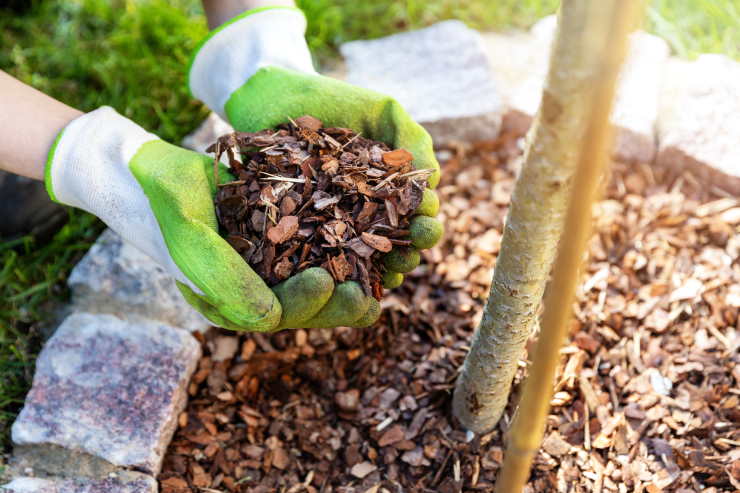
Homemade garden compost: This is a fantastic mulch you can use all year round. It is excellent for retaining moisture, suppressing unwanted weeds, and improving soil quality. In addition, you can add leftover scraps from your kitchen or chopped-up garden waste to the compost bin and turn it in every few months. And after 12 months, you’ll have usable & organic mulch for your garden.
Composted woodchips or bark: This mulch type breaks rather slowly, and it’s ideal for improving soil structure as it can improve drainage; therefore, it can make your soil moisture retentive.
Mushroom Compost: You might have heard this compost as “spent” mushroom compost at your local gardener. This type is relatively light, and it is easy to use. Because of its high pH values, this mulch is ideal for vegetables like kale, cabbages, and broccoli. However, you should avoid using this mulch on lime-hating plants like camellias and heather.
Inorganic Mulches
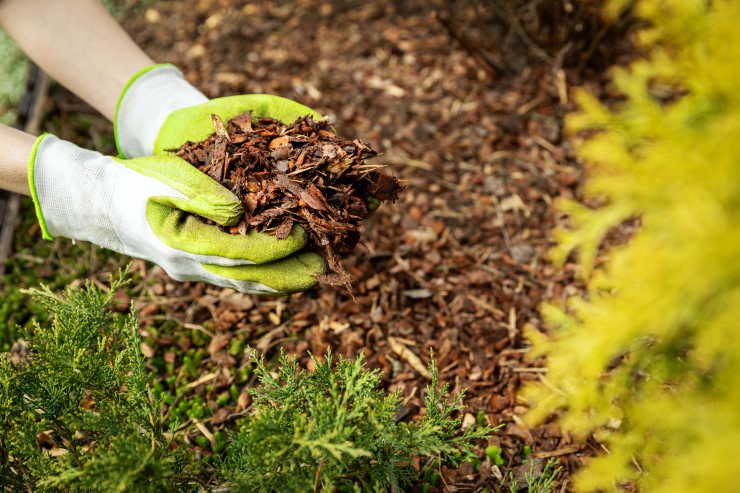
Rocks and gravel: They are typically used in gravel gardens, and they are used to help seal moisture into the soil. They also help suppress the weeds. But it would be best if you were careful as they can heat up and make the area around the plants too hot to grow. They work best in drought-resistant planting schemes.
Plastic sheeting and landscape fabric: These are generally laid over the soil to suppress the weeds. Some fabric types work better than others and keep in mind that plastic fragments will disintegrate into the soil and pollute your garden. Plastic sheeting also stops rain, air, and other nutrients from reaching the soil, so it may not be the best idea for your plants as they will need water, air, and nutrients to stay alive.
What Are the Benefits of Using Mulch in Your Garden?
Many times, we have said that mulch is beneficial for your plants and vegetables. But what are these benefits?
- Mulches are fantastic weed suppressants.
- They are low maintenance and help you get all nutrients available.
- They help you retain moisture in the soil, so you spend less time watering your plants and save water when you have less rainfall over the summer months.
- They can function as a protective layer for your plants when the temperatures drop or rise.
- Mulching can make your garden look more aesthetic. Adding a layer of mulch over the herbaceous borders can make your garden tidy and make your plants stand out more.
Now let’s answer some frequently asked questions about mulches in general.
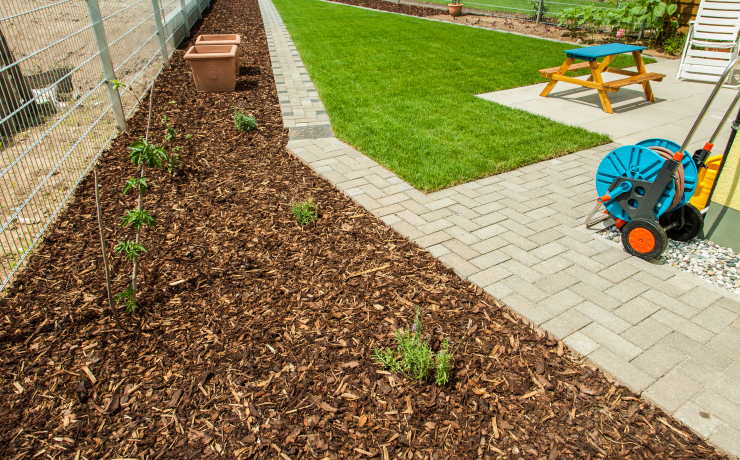
Are Mulch and Compost the Same Thing?
Although they have similar benefits, they are not the same thing. For example, mulch is used on the top layer to control the weed and retain moisture and temperature for the soil. On the other hand, compost is used beneath the top layer and provides the soil with essential nutrients.
What Mulch Is Best for Roses?
Mulching is highly recommended for roses as it acts as an insulator to the plant’s soil. They both protect the temperature variation and help retain the moisture in the soil. So, your rose garden (or you might have them in pots) will require less watering or weeding. You can use sugar cane mulch, mushroom compost, or garden compost for your roses, and you should apply it during winter to early spring.
Be careful, as you should always avoid mulches containing eucalyptus leaves or pine needles. Rose plants do not like eucalyptus because its acidity decreases the plants’ immunity to plants and infections, and it may even kill your roses.
What Is the Best Mulch for a Vegetable Garden?
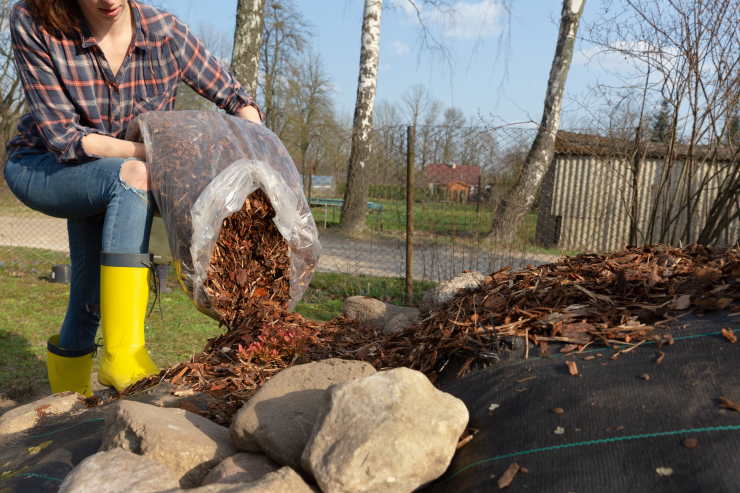
Mulch could act as a blanket for your vegetables, and it can prevent weeds and insulates your soil during chilly winters. It can also protect your vegetables from diseases. You can create your compost and use it as mulch, grass clippings, black plastic, straw, leaves, pine needles, cocoa hulls, and newspaper. All these types have different pros and cons, so you should research what works best for your vegetables and garden.
So now you know the best mulch types for your vegetable garden. But there are a few types you should not use.
You should not use unshredded leaves. Yes, shredded leaves and leaf composts do wonders for your vegetable gardens, but adding them to your plants might lock too much moisture, making it hard to breathe for your plants. It also leads to rot and fungal diseases.
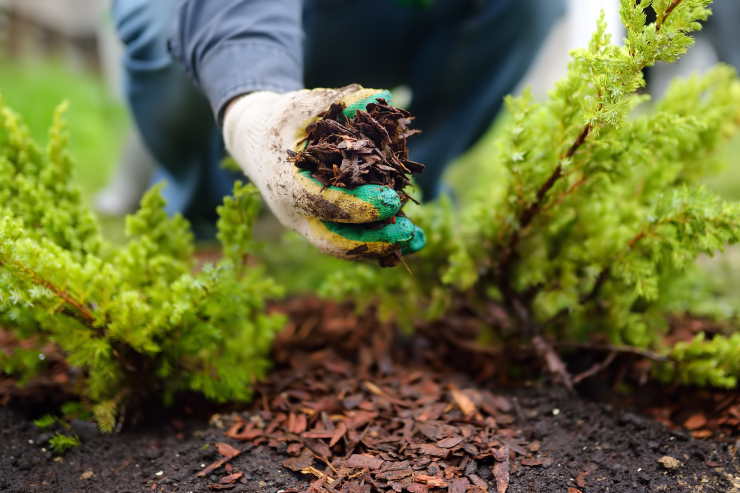
You should not use hay, as it contains too many weeds and seeds, so it would not provide that much benefit to your vegetables. (As an exception, you can use weed-free salt hay.)
You should not use clear plastic, as it does not help prevent weed growth and only heats the soil, so it is not useful for a vegetable garden.
Rubber mulch: This mulch type is made from recycled tires and can be used to suppress weeds. It can break down naturally, but the process takes exceptionally long. However, it is still unknown how toxic rubber mulches are. As they are made from old tires, they could potentially contain harmful and toxic chemicals that can damage your soil and plants.
So now you know the basics of mulching for your garden. You can easily grow healthy and delicious vegetables and breathtaking flowers with little effort and research.
You may also be interested in:
How to Care Lawn in Winter – Best Tips for Your Garden
![]() Looking for a nursery that carries native plants?
Looking for a nursery that carries native plants?
Browse our native plant nursery directory

